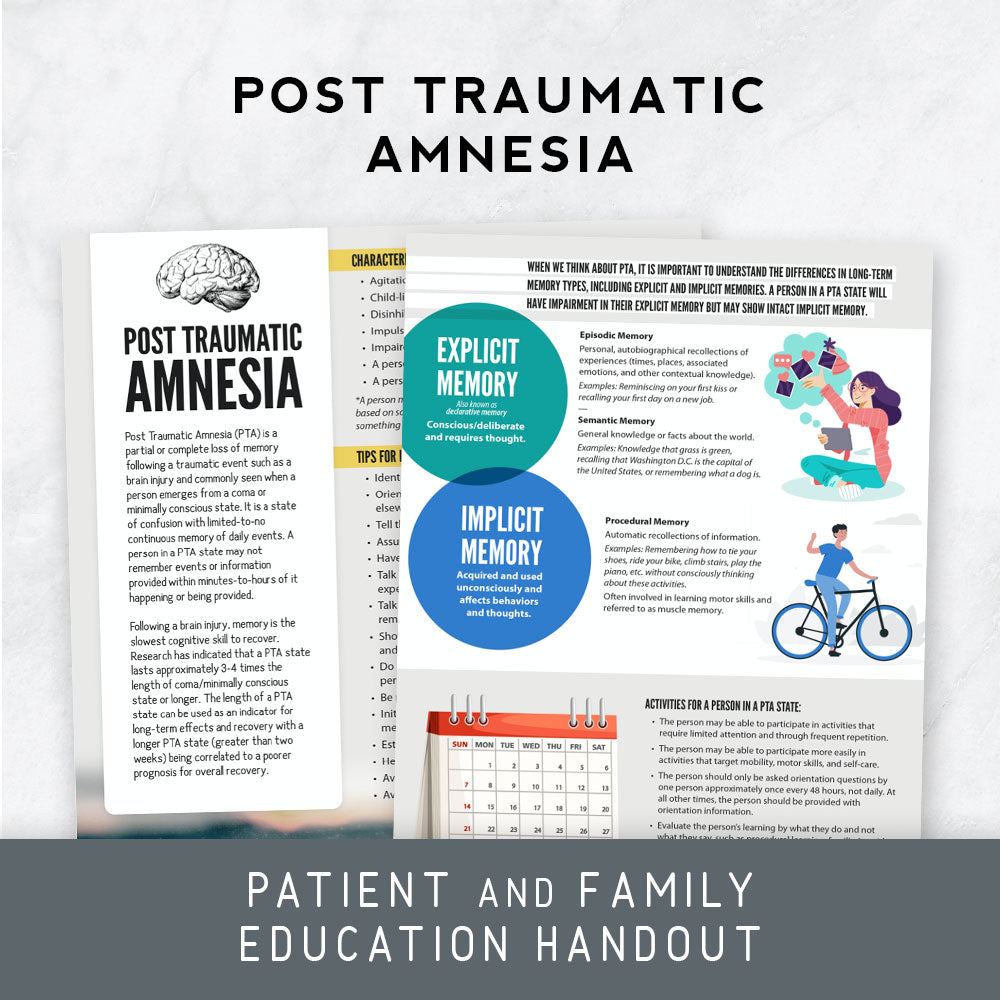


Cognitive exam: Can include tests of logic, reasoning, judgment, and short- and long-term memory.Medical history: Your healthcare provider will ask questions regarding your medical history, the nature of your memory loss, when it began, and whether other symptoms have accompanied your symptoms of amnesia.Physical exam: Includes a neurological function test, including an assessment of reflexes, strength, balance, vision, hearing, gait (walking), motor strength, and control.It is usually temporary, though the incidents that occurred during the period that the drug affected you may be difficult or impossible to recall. Drug-induced amnesia: Can occur as a result of taking certain drugs during prescribed treatment, general anesthesia, or substance abuse.Physical symptoms like headaches, nausea, or dizziness may accompany these episodes. During that time, you are unable to make new memories, but you usually retain your memory of your identity, the identity of family members, and your ability to perform daily tasks. It is a temporary condition that usually lasts between one and 10 hours. Transient global amnesia: Occurs as a sudden and brief loss of memory, often in middle-aged or elderly people.It can cause you to feel disoriented and have notable confusion regarding who you are, where you are, and what happened to cause your brain injury. Post-traumatic amnesia: Memory loss that occurs after a brain injury, such as a stroke, head trauma, or coma.It usually follows a period of severe trauma or psychological stress. It causes retrograde amnesia related to autobiographical memory. Dissociative amnesia: A rare dissociative disorder in which you are unable to remember key elements of your identity and life.


 0 kommentar(er)
0 kommentar(er)
